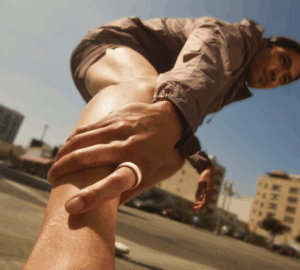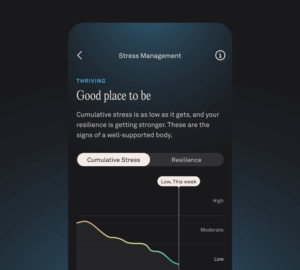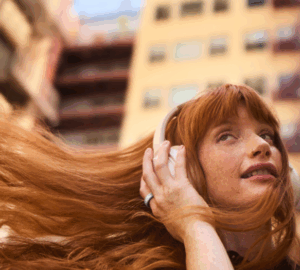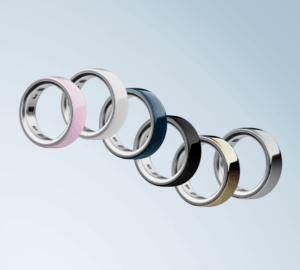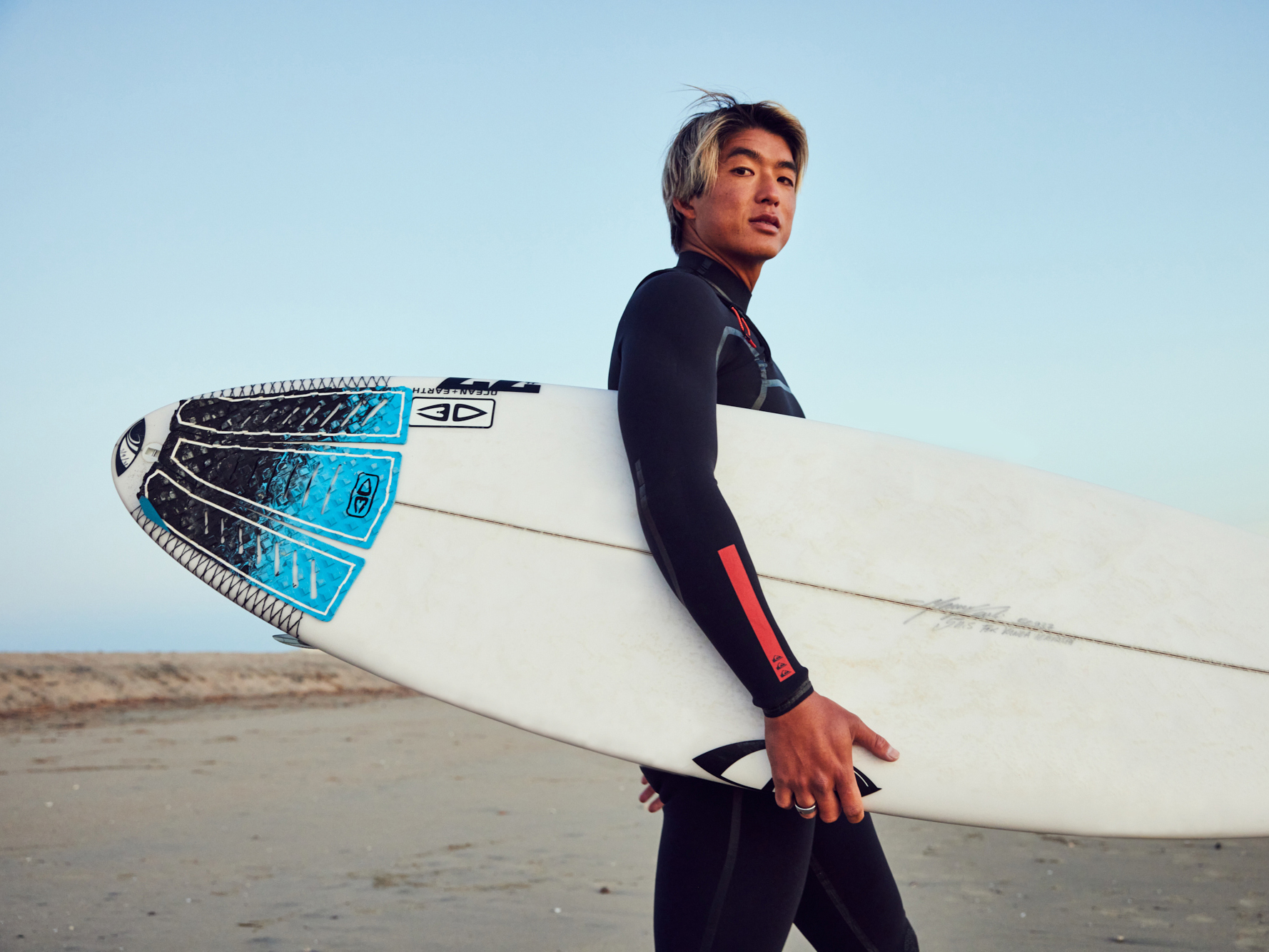All Hours is a series showcasing Oura members from a variety of diverse backgrounds, professions, and lifestyles — an artist-producer, an Olympic athlete, a CEO. Each episode demonstrates how these members turn to Oura to inform the actions, routines, and decisions that impact their health, at all hours of the day.
Born in Los Angeles, California, 25-year-old professional surfer Kanoa Igarashi grew up in Japan, where his father taught him how to surf at a young age. When he was 11, Kanoa’s family moved back to Huntington Beach to give him “the best possible chance of becoming a world champion surfer,” as he puts it. Kanoa quickly began rising through the ranks in amateur surfing events, becoming one of the top junior surfers in the world.
In 2016, Kanoa qualified for the World Surf League Championship Tour, the highest level of professional surfing. He’s also an ISA world champion, a silver medalist in the Tokyo Games, and the first Asian surfer to win a world championship tour event.
Along for the ride has been Oura Ring, which has helped Kanoa structure his schedule and routines — “not just as a professional surfer, but also just as a human being,” he tells us. Check out the video and interview below for more from this trail-blazing athlete.
On Set with Kanoa
On how Oura has impacted his training:
Oura Ring has helped me in my recovery and my wellness in general. Being so young, I’ve kind of had this idea of, sleep when you’re dead. I want to be active, going all day. But Oura Ring has helped me understand how much sleep affects me in daily life and how much more I can make out of the day if I have a good sleep.
Before Oura, my routine was a lot sloppier. I was training multiple hours a day, I was in the water multiple hours a day, I ate whatever I wanted. And my sleep was all over the place. I’d get injured, and I’d go into training sessions at 30%.
RELATED: How Sleep Helps Muscle Recovery and Growth
When I was introduced to Oura, it really helped me set a routine and a schedule. If I knew it was a recovery day, I would be focused on recovery. If I knew it was a training day, I put 100% into that. And that gave me confidence, knowing that I knew what I was setting out to do for that certain day.
On wearing Oura Ring to track sessions in the water:
When I wear Oura Ring in the water, I don’t have to worry about it breaking or anything like that. It just becomes a part of my body, and it really helps me track my sessions. Knowing my heart rate has helped me realize that every surf is different. When I’m surfing big waves, my heart rate is a lot higher, because I’m nervous and more anxious, and it’s physically more demanding. Then I have sessions where I’m just surfing with my friends, or I’m on my off day, and my heart rate’s really low. Oura has shown me that there are different types of surfing, and it kind of helps me decide what kind of session I’m going to have on a certain day.
LEARN MORE: Workout Heart Rate
On his Japanese heritage:
My great-great-grandfather was a Samurai. In Japanese culture, being a Samurai is about the idea of precision and never giving up. That strong Samurai spirit lives through me, and in competition I feel like that really comes out. Knowing I have Samurai blood in me has shaped me to be the competitor that I am today, and that’s a really special way to honor my family, my heritage, and my Japanese culture. I hope to be the motor that starts a new wave, in Asia, for surfing.






